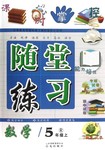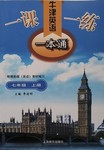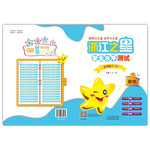题目内容
I’d never seen Carlo in an evening dress before-it was quite a(n)________.
A.transportation
B.exhibition
C.repetition
D.transformation

 课时掌控随堂练习系列答案
课时掌控随堂练习系列答案 一课一练一本通系列答案
一课一练一本通系列答案 浙江之星学业水平测试系列答案
浙江之星学业水平测试系列答案Angela Chang(张韶涵) didn’t know it would be so hard to turn singing into a career. She went to many different record companies. But she was always turned down for looking too young and small.
“I’d never had such difficulties before,” Chang said. But Chang’s talent was finally accepted in 2002. When she got a piece of work, she cried.
She soon became a star. Her first album Over the Rainbow sold very well. She won many awards.
“You wouldn’t believe such a beautiful voice could come from such a small body,” said one musician after hearing Chang sing. “She has a special voice. You can’t forget it.”
But the 25-year-old girl has other talents too. Chang is also an actress. She has played a role in the popular TV plays, My MVP Valentine and At Dolphin Bay. Many people remember her common-girl parts in the plays. But acting is difficult. Chang once acted so badly that she was nearly fired. Another time it took her 27 tries to get a scene right.
“I cried when I got back home,” Chang said. “But I knew that I wouldn’t always fail. You only fail when you give up.”
Now with four albums behind her - Over the Rainbow, Aurora, Pandora and Flower in the Wonderland, it’s clear that Chang and music were made for each other. As she sings in one song, “I have a pair of invisible wings. They fly me to the sky and give me hope.”
【小题1】The word “invisible” in the last paragraph means “________________”.
| A.难以相信的 | B.看不见的 | C.隐藏的 | D.暗的 |
| A.she looks very common | B.she is too young |
| C.she doesn’t sing very well | D.she looks young and small |
| A.She won many awards for the album Over the Rainbow. |
| B.She has made four films. |
| C.One musician spoke highly of her. |
| D.She is not only a singer but an actress. |
| A.she is strong-minded | B.people like her films |
| C.she is interested in acting | D.she acted in the popular TV plays |
| A.The Small Girl. | B.Four Albums. |
| C.I have a Pair of Invisible Wings. | D.A Poor Actress. |
 After a long
pause, a boy raised his hand,” Have you ever seen a grasshopper(蚱蜢) eat? When I try
eating leaves like that, I get a stomachache. Why?”
After a long
pause, a boy raised his hand,” Have you ever seen a grasshopper(蚱蜢) eat? When I try
eating leaves like that, I get a stomachache. Why?”